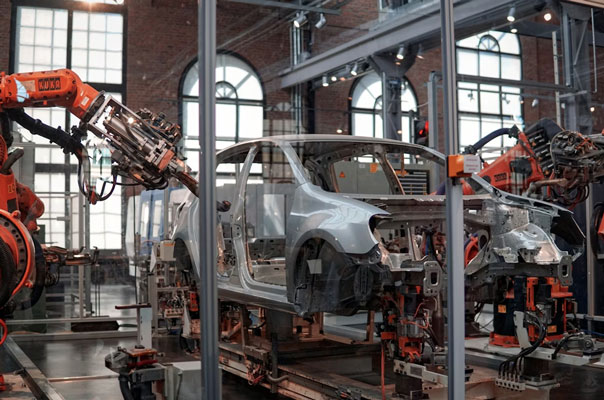Piston compressors are gaining prominence across various industries due to their efficiency and reliability. These machines play a crucial role in several applications that demand high pressure and volume output.
The ongoing advancements in technology and the rising demand for energy efficiency have exacerbated this trend. As we explore the surge in sales, it becomes important to understand which sectors are driving this growth.
Manufacturing Sector’s Growing Demand
The manufacturing sector has seen a substantial increase in the utilization of piston compressors. Equipment that operates efficiently can significantly reduce production costs.
Recent reports indicate that manufacturers are investing more in energy-efficient technologies, leading to a surge in sales of piston compressors. With applications ranging from pneumatic tools to assembly lines, the demand for a reciprocating piston compressor is steadily increasing. This sector requires machinery that can manage the intense demands of high-volume production, where downtime can lead to costly delays. Piston compressors fit the bill for such needs, as they can run continuously while maintaining optimal performance levels.
Their ability to deliver consistent air pressure makes them ideal for environments that rely on precise and uninterrupted operations. In addition, piston compressors are relatively easy to maintain, which further appeals to facilities aiming to reduce maintenance costs.
As sustainability becomes a growing concern, many manufacturers now favor compressors that support lower emissions and greater energy savings. Versatile design options allow for customization based on specific industrial requirements. These advantages explain why piston compressors continue to play a central role in driving manufacturing efficiency forward.
Growing Applications in the Automotive Industry
The automotive industry is another key sector fuelling the rise in piston compressor sales. Manufacturing processes, including molding, painting, and assembly, require reliable air compression solutions. As automakers strive to enhance productivity and reduce manufacturing costs, piston compressors are emerging as a critical component of their operations.
The advancement of electric vehicles (EVs) has triggered new manufacturing techniques that rely heavily on compressed air. Ensuring the efficient and consistent application of paint and finishes requires precise pressure control, which piston compressors provide effectively.
Air-powered tools used in the fabrication and installation of lightweight EV components depend on stable compressor output. Piston compressors are valued for their ability to handle stop-and-go cycles, which are common in automotive assembly lines.
Their compact size and versatility make them suitable for various stages of vehicle production, from metal stamping to quality inspection. With increasing automation in car manufacturing, these compressors offer compatibility with robotic systems that require consistent pneumatic support. As demand for faster turnaround and improved precision grows, piston compressors continue to be indispensable in meeting the automotive sector’s evolving needs.
Healthcare Sector’s Escalating Needs
The healthcare industry has experienced a notable increase in the demand for piston compressors, particularly in medical applications. These compressors are widely used in respiratory devices, dental equipment, and hospital facilities that require compressed air for various therapeutic and surgical applications.
As the global population ages, the need for innovative medical technologies continues to rise. This growth leads to increased demand for reliable air compression solutions, making piston compressors an integral part of healthcare facilities that prioritize patient care.
They offer the precision and consistency required for devices such as ventilators and anesthesia machines, where steady airflow is critical. Many healthcare providers prefer oil-free piston compressors to ensure clean, contaminant-free air delivery in sterile environments.
Their low maintenance requirements and dependable performance make them ideal for 24/7 hospital operations. In rural or mobile medical units, compact piston compressors provide a portable yet powerful option for critical procedures. As healthcare systems expand their reach, the versatility of piston compressors supports the evolving infrastructure and treatment needs.
Impact of Energy Regulations on Growth
Recent energy regulations have compelled many sectors to seek more environmentally friendly and cost-effective solutions. Piston compressors have adapted well to these regulations, as manufacturers focus on producing units that consume less energy while delivering optimal performance. The result has been increased sales as industries look for compliant solutions that help them meet sustainability standards.
Organizations raising awareness about energy efficiency further boost this trend. Industries are beginning to understand the long-term cost-saving benefits of investing in advanced piston compressors, which ultimately contribute to their bottom line.
Boost in Construction Activities
The construction industry is experiencing a surge in activities, further driving the demand for piston compressors. These machines are vital for operating pneumatic tools such as nail guns, drills, and concrete vibrators. As construction projects multiply, so does the need for effective and efficient air compression.
With the push for rapid build times and efficiency in construction practices, using adaptable and powerful tools is a priority. Piston compressors ensure that contractors have the required air pressure for various applications, enhancing productivity significantly.
Their durability and ability to function in rugged environments make them well-suited for on-site demands. Portable piston compressors are valued for remote job sites where access to electricity and infrastructure may be limited.
These units allow for uninterrupted tool operation even in extreme weather conditions. In large-scale developments, multiple compressors can be synchronized to support high-demand equipment simultaneously. As urban development and infrastructure projects continue to rise globally, the role of piston compressors in construction becomes increasingly indispensable.
Rise in Renewable Energy Projects
The renewable energy sector is witnessing significant growth, fueled by global efforts to shift to cleaner energy sources. Piston compressors are integral to various renewable energy applications, including wind and solar energy farms, where they are used for controlling and regulating energy output.
As nations invest heavily in green technology, the reliance on advanced air compression systems has soared. With a consistent need for reliability and performance in renewable projects, piston compressors play a pivotal role in supporting these initiatives.

Advancements in Technology Driving Market Growth
Advances in technology have ushered in new designs and innovations in piston compressors, bolstering their market appeal. Enhanced designs improve efficiency and durability and lower operational costs. Incorporating smart technologies into these systems enables better monitoring and control, further appealing to sectors looking to optimize their operations.
These technological enhancements make piston compressors a more attractive option for businesses across various sectors. With ongoing research and development, we can expect to see even more advanced solutions emerge that cater to the specific needs of multiple industries.
The rise in sales of piston compressors is attributable to several sectors adjusting to evolving demands. As efficiency, reliability, and sustainability take precedence, industries are embracing this technology to propel their growth forward.










